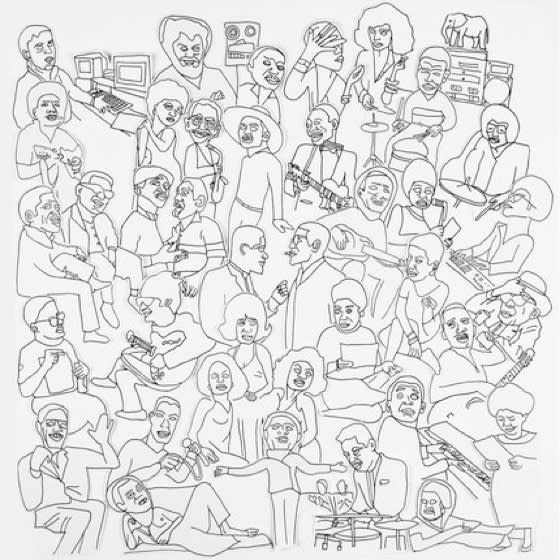Romare's debut LP, Projections, is a perfect fit as the newest fixture on the ever-eclectic Ninja Tune label. Taking his name from Romare Bearden, an American artist fluent in collage work, Romare's latest, Projections, follows a similar frequency — playing with mediums, bridging genres and celebrating elements from all corners of the music spectrum. His deft-handed, inconspicuous approach is why it works, almost coming across as a skilled weaving of a Late Night Tales compilation, the track and style shifts so seamless that you don't realize until midway through the album that it sounds markedly different from the beginning.
Opener "Nina's Charm," with its drifting keyboard melodies, sputtering hi-hats and samples of Nina Simone over a spectral gospel choir, leads brilliantly into one of the best tracks on the album, "Work Song." An homage to the American work-song tradition, bouncy percussion is overlaid with plucked strings, piano, brass and even what appears to be a vocal snippet from earlier work "Down the Line (It Takes A Number)." "Roots" and "Rainbow" go more of a house route of house (the latter pays homage to the gay rights movement via disco in the '70s), while tracks like "Ray's Foot" and "Lover Man" make use of disjointed synths, smudged vocals, and chaotic chords.
While it's easy to go overboard making an album like this and lose a track by burying it in too many samples and obscure references, Projections keeps its focus, and balance, by never using more than necessary.
(Ninja Tune)Opener "Nina's Charm," with its drifting keyboard melodies, sputtering hi-hats and samples of Nina Simone over a spectral gospel choir, leads brilliantly into one of the best tracks on the album, "Work Song." An homage to the American work-song tradition, bouncy percussion is overlaid with plucked strings, piano, brass and even what appears to be a vocal snippet from earlier work "Down the Line (It Takes A Number)." "Roots" and "Rainbow" go more of a house route of house (the latter pays homage to the gay rights movement via disco in the '70s), while tracks like "Ray's Foot" and "Lover Man" make use of disjointed synths, smudged vocals, and chaotic chords.
While it's easy to go overboard making an album like this and lose a track by burying it in too many samples and obscure references, Projections keeps its focus, and balance, by never using more than necessary.
